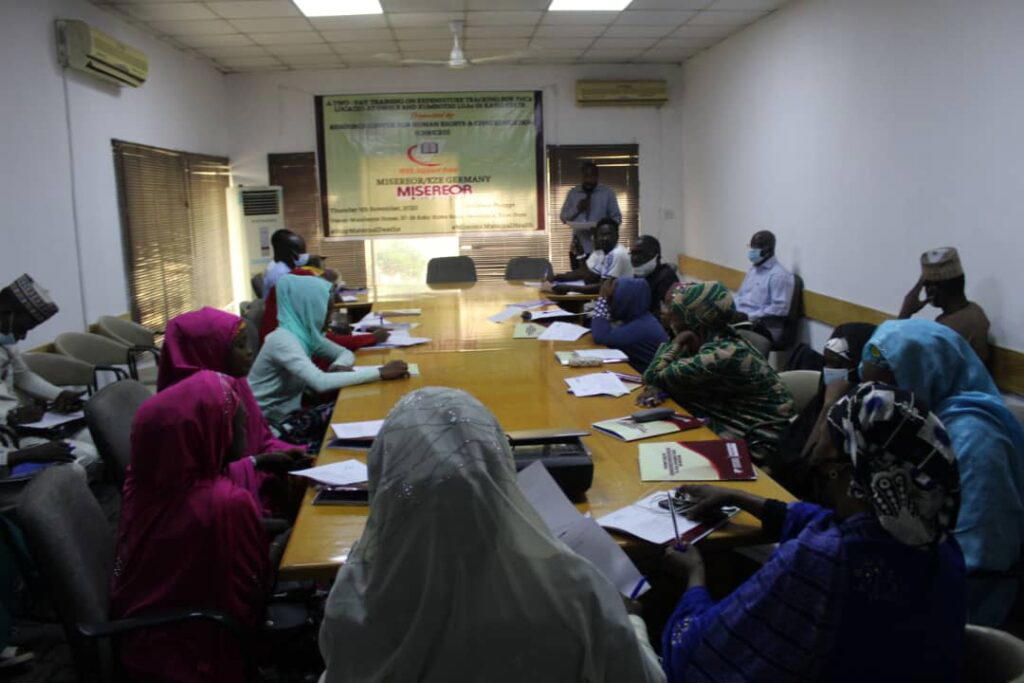Nigeria at 65: Democracy gasping for breath as opposition’s voice silenced – CHRICED

By Luminous Jannamike
ABUJA – The Resource Centre for Human Rights and Civic Education (CHRICED) has warned that Nigeria’s democracy is under severe threat, with political opportunism replacing governance, opposition parties facing clampdowns, and the judiciary weakened by interference and corruption.
In a State of the Nation Address to mark Nigeria’s 65th Independence Anniversary, Comrade Ibrahim Zikirullahi, Executive Director of CHRICED, signed the statement, saying the country was ‘bleeding’ politically, economically and socially under deepening neglect of institutions meant to protect citizens.
According to him, “Sixty-five years after independence, the hope of Nigeria’s founding fathers for unity, prosperity, and dignity has given way to frustration, as anniversaries now remind citizens of unfulfilled promises and a nation still struggling to define its destiny.”
The group accused the current administration of allowing premature electioneering to dominate national discourse at the expense of governance.
“The time for passive hope has passed. The time for courageous, collective action is now,” Zikirullahi declared.
CHRICED also raised concerns about the shrinking space for opposition, citing recent clampdowns on the secretariats of the Peoples Democratic Party (PDP) and African Democratic Congress (ADC), alongside unconstitutional restrictions on the political activities of opposition figures.
It described these developments as ‘intimidation tactics’ that threaten Nigeria’s multiparty democracy.
The group further drew attention to what it described as the systemic exclusion of Abuja’s original inhabitants, whose lands have been seized without compensation and whose voices are marginalised in national affairs.
The organisation reiterated its demand that Abuja be recognised as Nigeria’s 37th state to restore dignity and political representation.
On the judiciary, CHRICED lamented growing allegations of corruption, political interference and inefficiency, warning that justice in Nigeria was ‘no longer blind, but barricaded behind walls of influence, delay and silence.’
“Nigerians are sounding the alarm over the deepening crisis within the judiciary, a branch once revered as the last hope of the common man. Today, that hope is increasingly fading,” Zikirullahi said.
The organisation argued that prolonged delays in court cases, bought verdicts and executive capture of sensitive political trials had eroded public confidence. It also cited the Auditor-General’s findings of billions lost to fraudulent contracts as evidence of impunity going unpunished.
It described the National Assembly’s proposal to create 31 new states as a ‘dangerous diversion’ at a time of hyperinflation, mass unemployment and insecurity. The group said the only justified proposal was granting statehood to Abuja to end decades of exclusion of its indigenous peoples.
On the economy, CHRICED painted a bleak picture, citing August 2025 inflation of 20.4 per cent, an exchange rate of ₦1,501.45 to the dollar, and a monetary policy rate of 27.5 per cent.
It said these indicators reflected a country in economic freefall, with more than 130 million citizens trapped in poverty and youth unemployment exceeding 40 per cent.
The group also highlighted widening inequality in wages.
“A senator earns over ₦31 million monthly; a civil servant earns less than ₦70,000. Yet both families shop in the same markets. This disparity is not just unjust, it is wicked and unsustainable,” Zikirullahi noted.
On insecurity, CHRICED condemned the continuing violence by insurgents and armed groups across the country, the rise of kidnappings, and persistent farmer–herder clashes. It said insecurity had forced the closure of hundreds of schools, leaving millions of children without access to education.
“The tragic death of ARISE News TV broadcaster Somtochukwu Christelle Maduagwu highlights the breakdown of law enforcement and public safety,” CHRICED noted.
The group also criticised underfunding in the health and education sectors, with allocations still below international benchmarks, dilapidated facilities, and an ongoing brain drain of doctors and teachers.
It further decried the harassment of journalists, activists and civil society groups, citing over 70 cases of press intimidation in 2024 and excessive use of the Cybercrime Act to muzzle dissent. It condemned the killing of protesters during last year’s #EndBadGovernance demonstrations and what it described as the criminalisation of peaceful civic action.
“When civic space shrinks, tyranny expands. When voices are silenced, injustice thrives,” Zikirullahi said.
As a way forward, CHRICED called for halting premature campaigning, implementing the Justice Uwais electoral reform recommendations, reforming the judiciary and security sector, cutting the cost of governance, protecting civic space, ensuring transparent investigations of corruption, and convening a national dialogue to heal divisions.
“Democracy is not a luxury; it is a lifeline. When it dies, tyranny thrives. Let us demand accountability, justice, and inclusion. The future of our nation depends not on the courage of a few, but on the conscience of us all,” the statement added.
The post Nigeria at 65: Democracy gasping for breath as opposition’s voice silenced – CHRICED appeared first on Vanguard News.







